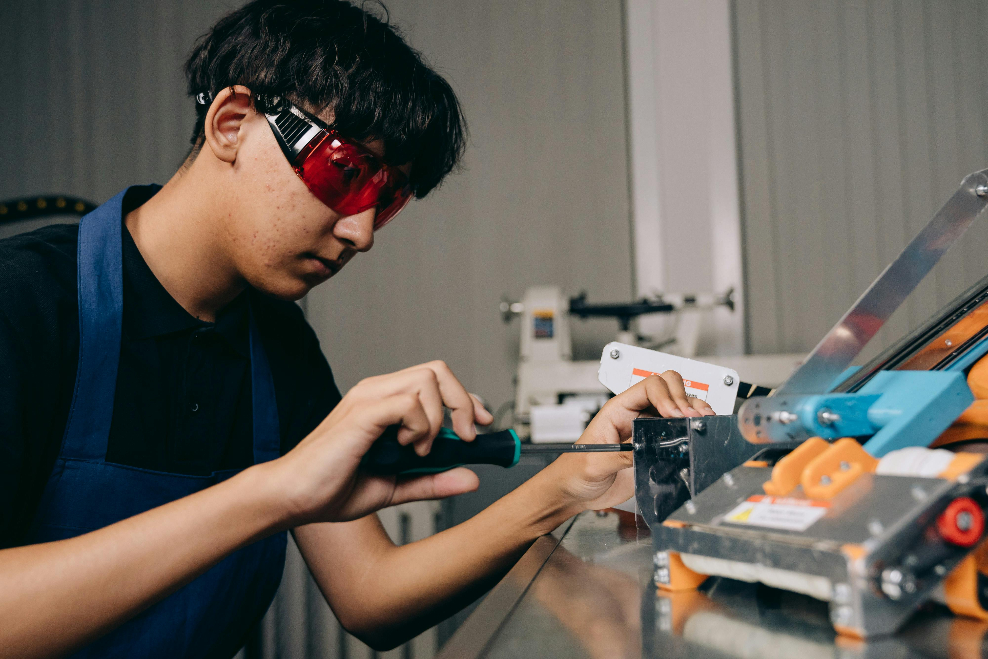Technical Education Deep Dive: All About Apprenticeships and T Levels
You might have heard a lot about technical education. It’s a hot topic at the moment, and in the news quite a lot!
But what does it actually mean when a course is called technical education? Essentially, it’s a course that will provide you with the opportunity to learn whilst you work.
The courses generally combine practical training and classroom learning too. This means that a technical education course is all about learning and gaining workplace experience.
Why choose technical education?
There are many benefits of pursuing a technical education pathway. It can give you the opportunity to gain valuable experience in your field. Provide you with the qualifications you need for further study, if you wish to do so. Plus, it can also help build confidence and add to your maturity. Some programmes even offer the opportunity to earn whilst you learn.
The pathways within Greater Manchester offer a varied choice of programmes. Currently, you can either choose to do an Apprenticeship or T Levels.
Below, we go on to explain what each type of course involves.
Apprenticeships
What is an apprenticeship?
Apprenticeships are available at a range of different levels. For many people, an apprenticeship will be their first way into an industry or sector (although some people do apprenticeships much later in their careers!). If you do get your start as an apprentice, then you’ll be a student and an employee. So, you’ll be paid and be entitled to benefits like holiday and sick leave.
Most of the learning you will do is on the job. 80% of your time will be spent in the workplace, and the other 20% spent learning. This could be in a training facility or online, this depends on the program. The length of an apprenticeship can be anywhere from a year to five years, depending on the level of your apprenticeship.

What are the requirements to do an apprenticeship?
To become an apprentice, you must be over the age of 16. However, there is no upper age limit for starting an apprenticeship. In the UK, the oldest reported apprentice started their course aged 76! It’s never too late.
Each apprenticeship has its own qualification requirements. It’s always best to research the program thoroughly so you’re aware of what you need before you apply.
Apprenticeships are available at lots of different qualification levels:
- Intermediate Apprenticeships (Level 2) are equivalent to 2 GCSES
- Advanced Apprenticeships (Level 3) are equivalent to 3 A levels
- Higher Apprenticeships (Level 4,5,6 and 7) are equivalent to Foundation Degree and Above
- Degree Apprenticeships (Level 6 and 7) are equivalent to a Bachelor’s or Master’s degree.
Most careers now have apprenticeship pathways, even the more niche roles. You can check out some apprenticeships available in Greater Manchester now, on GMACS.
T Levels
What are T Levels?
The T in T Levels stands for “technical.” T Levels are focused around one specific technical subject. They’re equivalent to three A levels, and you study them at the same age as A levels.
There are 20 different T Level courses to choose from in Greater Manchester. Different colleges offer different courses, so explore what’s on offer. A bit of research will help you make the right choice for you.
With T Levels there is more focus on your vocational skills. 80% of your time will be spent in the classroom. The other 20% of your course will be spent in an industry placement. The placement lasts at least 45 working days, giving you a great opportunity to put your skills to the test.
The courses last for two years. After this you can decide to go on to university, do an apprenticeship or enter the world of work. The skills that you build during your time on the T Level placement, will have given you the experience to confidently enter the world of work.

What are the requirements?
T Levels are designed for those aged 16- 18 years old. Like A levels, they are courses which follow your GCSEs.
You may need certain qualifications to take a T Level, like GCSEs in English and Maths. Different courses have different entry requirements. You can browse the GMACS area pages to discover which T Levels are on offer in your local area. This should give you an idea of what to expect!

